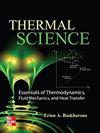分数阶微分方程的一种新方法
IF 1.1
4区 工程技术
Q4 THERMODYNAMICS
引用次数: 0
摘要
在这项工作中,我们定义了阶导数的分数?> 0,对函数的定义域没有限制,并给出它的几何形状。我们推导了该方法的一些规则和性质,并证明了分数阶收敛于整数阶,则每条规则收敛于该整数下相应的导数规则。在应用程序方面,我们展示了它能够将各种类型的FDE转换为ODE,反之亦然。最后,我们用新方法求解了文献中给出的几个FDE。本文章由计算机程序翻译,如有差异,请以英文原文为准。
A new approach to fractional differential equations
In this work, we define fractional derivative of order ? > 0, with no restrictions on the domain of the function, and give its geometry. We derive some rules and properties for the proposed new approach and show that if fractional order converges to an integer order, then each rule converges to the corresponding rule of derivative under this integer. On applications side we show that it has ability to convert various type of FDE to ODE and vice versa. Finally, we solve several FDE given in literature through the new approach.
求助全文
通过发布文献求助,成功后即可免费获取论文全文。
去求助
来源期刊

Thermal Science
工程技术-热力学
CiteScore
2.70
自引率
29.40%
发文量
399
审稿时长
5 months
期刊介绍:
The main aims of Thermal Science
to publish papers giving results of the fundamental and applied research in different, but closely connected fields:
fluid mechanics (mainly turbulent flows), heat transfer, mass transfer, combustion and chemical processes
in single, and specifically in multi-phase and multi-component flows
in high-temperature chemically reacting flows
processes present in thermal engineering, energy generating or consuming equipment, process and chemical engineering equipment and devices, ecological engineering,
The important characteristic of the journal is the orientation to the fundamental results of the investigations of different physical and chemical processes, always jointly present in real conditions, and their mutual influence. To publish papers written by experts from different fields: mechanical engineering, chemical engineering, fluid dynamics, thermodynamics and related fields. To inform international scientific community about the recent, and most prominent fundamental results achieved in the South-East European region, and particularly in Serbia, and - vice versa - to inform the scientific community from South-East European Region about recent fundamental and applied scientific achievements in developed countries, serving as a basis for technology development. To achieve international standards of the published papers, by the engagement of experts from different countries in the International Advisory board.
 求助内容:
求助内容: 应助结果提醒方式:
应助结果提醒方式:


